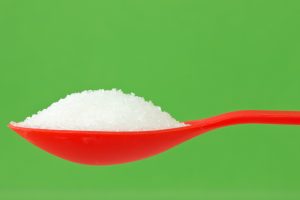By Heide Kennedy, Arizona Farm Bureau Communications Intern
Artificial sweeteners seem to be miraculous little substances. They’re just as sweet, if not sweeter than regular sugar, and they have little to no calories! But, in a way, this seems too good to be true.

Here’s a little bit of insight from registered dietitian nutritionist Bianca Tamburello on some of the most popular artificial sweeteners.
Sugar Alcohols – Erythritol, Sorbitol, Mannitol, and Xylitol
These sugar alcohols are extracted from plants that produce berries. Sugar alcohols aren’t entirely calorie-free, but they do have significantly fewer calories than regular sugar. Specifically, sugar alcohols have only one-third to half of the calories of regular sugar.
Aspartame – Equal
Aspartame is made of an amino acid called phenylalanine, and aspartic acid. While aspartame isn’t completely calorie-free, it only has 4 calories per gram. Due to its high content of methanol, aspartame is actually carcinogenic.
Saccharin – Sweet N Low
Saccharin is an artificial sweetener that actually has 0 calories per gram. Saccharin can’t be metabolized by our bodies, so it won’t cause your blood sugar to fluctuate. While this sounds great, this artificial sweetener causes our gut microbiomes to be altered.
Sucralose – Splenda
Sucralose is made in a lab and is completely calorie-free. Sucralose is probably the most common form of artificial sweetener to be found in many sugar-free products. One downside to sucralose is that it can produce a carcinogenic substance when heated too much.
Stevia and Monk fruit
Stevia and monk fruit sweeteners are extracts from plants that are zero calorie sweeteners. Since they are plant derived, they are more natural than the other sugar alternatives. But just because they are more natural doesn’t mean that they are completely harmless. Stevia is well known for causing gut disruptions, and monk fruit doesn’t have enough evidence to be proven completely safe.
So, while these sugar alternatives might look appealing because they are low in calories and don’t cause your blood sugar to fluctuate, they aren’t completely harmless.
For more health-related articles, check out the Fill Your Plate blog!

